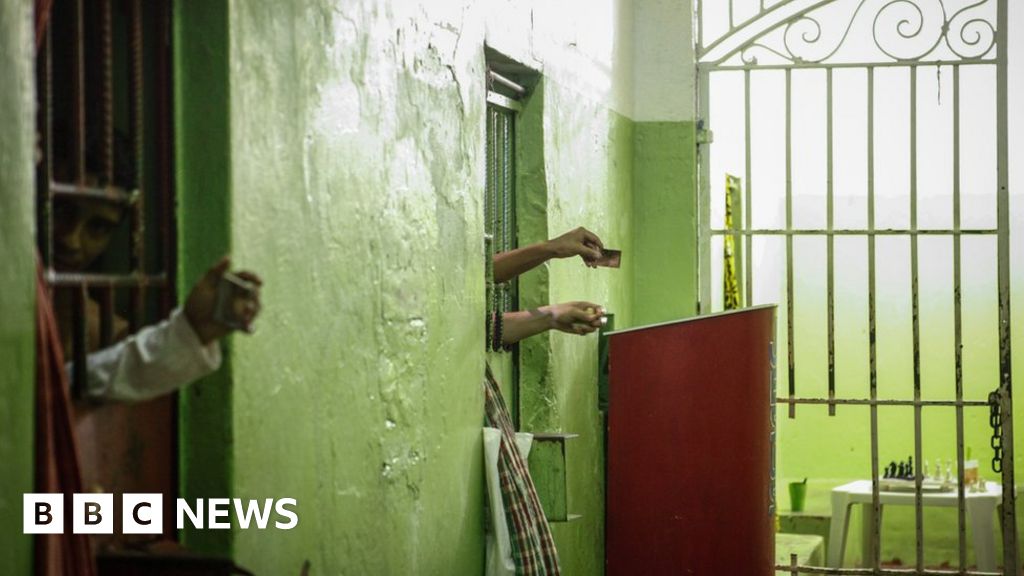LONDON — On Boris Johnson’s first day as Britain’s head of government, the loquacious Ian Blackford stood in the House of Commons and welcomed “the last prime minister of the United Kingdom.”
Blackford, the Scottish National Party’s leader in Parliament, was not being subtle. He was suggesting that with Johnson as prime minister, the United Kingdom might soon crack up, beginning with Scotland.
Scotland voted against independence in 2014, but there is much animosity toward Johnson north of the border, and a palpable dread over leaving the European Union — especially the hard, “no-deal Brexit” that the new prime minister says Britain must prepare for.
In the country’s 2016 Brexit referendum, Scotland voted to remain in the E.U. by a wide margin, 62 percent to 38 percent.
Johnson dashed up to Scotland on Monday, making a stop at a Royal Navy base before a scheduled speech.
Johnson defended his assertion that the former Prime Minister Theresa May’s withdrawal agreement was “dead” and that a new, better deal could be struck — despite assertions by European leaders that there will be no renegotiation.
“We are not aiming for a no-deal Brexit at all,” Johnson told reporters. But he has said Britain needs to be prepared to leave without a deal to manage the transition.
The new prime minister is a divisive character — loved and very much disliked — across the United Kingdom, a political union comprising four nations: England, Scotland, Wales and Northern Ireland. Or as Johnson called it on the steps of Downing Street last week, “the awesome foursome that are incarnated in that red, white and blue flag,” the Union Jack.
In more extended remarks in Scotland Monday afternoon, Johnson is expected to praise “the most successful political and economic union in history” and to assure the north that “we are a global brand, and together we are safer, stronger and more prosperous.”
It has become something of a ritual for British leaders to visit each of the nations early on as a way to demonstrate their commitment to the union — and their understanding of the devolved, power-sharing governments, which allow Scotland, Wales and Northern Ireland to maintain their own parliaments with some power over regional spending and decision-making.
But some are concerned that the “awesome foursome” could get wobbly, especially without an E.U. withdrawal agreement. Johnson says he wants a new better Brexit deal with Europe but has promised to leave the E.U. at the end of October “no ifs, no buts.” The current legal position is that Britain will leave without a deal, something many economists think could hurt the country.
In a rare intervention into domestic British politics, Leo Varadkar, the Irish prime minister, warned that a hard Brexit could undermine U.K. unity.
“One of the things, ironically, that could really undermine the union, the United Kingdom union, is a hard Brexit,” Varadkar said Friday. The leader of the Republic of Ireland, which will remain in the European Union, warned that Northern Ireland could seek to exit the United Kingdom.
“People who you might describe as moderate nationalists or moderate Catholics, who were more or less happy with the status quo, will look more towards a united Ireland,” Varadkar said.
Some in Britain have sounded similar alarm bells. May’s de facto deputy prime minister, David Lidington, told the BBC this month that the union “would be under much greater strain in the event of a no deal.”
He added: “My view comes not just from Scottish nationalism and pressure for Irish unification — it comes from indifference among English opinion to the value of the union.”
Gordon Brown, a former Labour Party prime minister, said at an event in London last week that Johnson could be remembered “not as the 55th prime minister of the UK but as the first prime minister of England.”
[Want to understand Boris Johnson? Read his incendiary journalism]
Nationalists in Scotland who want the U.K. to split are hoping that Johnson’s premiership is equivalent to Christmas coming early. Blackford has called Johnson a “recruiting tool” for the cause.
Johnson certainly attracts attention.
Within hours of his winning the Conservative Party leadership race, hundreds of protesters gathered in central Glasgow for an “anti-Boris, pro-independence” rally, some carrying placards that read “Boris No! Independence Yes!” and “Eton mess.”
Gary Kelly, 44, started planning the protest a week before when he said it became clear that Johnson was likely to be selected as Conservative leader by the party’s 160,000 dues-paying members — about 0.25 percent of the British electorate — who largely live in the southern half of England. Johnson bested his rival, drawing 92,153 votes.
“Not exactly a stonewalled mandate, is it? It’s an English vote, an English prime minister,” said Kelly, who predicted that a Johnson government would be a boost for Scottish independence, which he supports. “Boris is a racist, a homophobe. He’s a bigot. He’s not the kind of person Scotland wants representing them.”
A poll last month found that 49 percent of Scots favored independence but that the number would rise to 53 percent in the event Johnson became prime minister.
It’s far from clear whether a Johnson administration could continue to tip the scales in favor of independence, or whether the new prime minister may yet win over Scots with his shiny optimism and numerous public-spending pledges. But a chaotic no-deal Brexit could help the Scottish National Party (SNP) to make its case.
John Curtice, a politics professor at the University of Strathclyde, said that if a Johnson government leaves the bloc without a deal, “and if it’s as bad as some claim it will be, then obviously it’s easier for the SNP to pursue the independence argument.”
Since the independence referendum five years ago, support for independence has generally hovered around the mid-40 percent range.
He also added that Johnson — who was a leader of Brexit campaign in 2016 — is deeply unpopular across the United Kingdom with people who voted against Brexit. Of the four nations, Scotland and Northern Ireland voted against Brexit; England and Wales voted for it.
Johnson has dismissed accusations that he is unpopular in Scotland. When asked about it in Parliament last week, he responded by explaining “why I seem to get a good reception in Scotland.”
“It may be because the people of Scotland recognize that they have a common-sensical Conservative approach, which would not hand back control of their fisheries to Brussels just as Scotland has regained control of its fantastic fish,” he said.
A YouGov survey last week showed that 65 percent of Scots thought that Johnson would be a “poor” or “terrible” prime minister.
Leafing through different regional editions of the same newspaper does seem to suggest that there are varying views on Johnson across the British Isles.
Roy Greenslade, a media commentator, said in an interview with The Washington Post that the news coverage of Johnson has been negative in Scotland, where Johnson’s background — he studied at the elite Eton College before going on to Oxford — does him no favors.
“Boris embodies all that the average working-class Scots person finds disagreeable,” he said. “Eton, Oxford, being a Westminster person — it all conjures up for the Scots English privilege.”
And it’s not just Johnson. Scotland is largely an anti-Conservative part of the world. The Scottish National Party has dominated the landscape for about a decade. For half a century before that, Scotland was a Labour Party stronghold.
But Ruth Davidson, the charismatic leader of the Scottish Conservatives, has helped to transform her party’s fortunes north of the border, winning 13 seats in Parliament in the last election — not an insignificant number for the Tories, who have a paper-thin working majority of just two.
Davidson has been notably lukewarm on Johnson.
“He’s a disaster for her,” said Thomas Lundberg, a lecturer in politics at the University of Glasgow. Johnson, he told The Post, represents the “quintessentially English posh person who has made it through privilege and contacts, rather than merit.”
Davidson is not Johnson’s biggest fan. She reportedly banned him from attending the recent Scottish Tory conference. She backed his rivals in the leadership contest. During the 2016 E.U. referendum, she fired up the pro-E.U. side during a televised debate by saying that Johnson’s side had told a series of lies.
After Johnson became prime minister, Davidson told BBC Scotland, “I’ve been a critic of Boris Johnson when our ideas have differed and when I thought he merited it, and I will continue to be so.”
But now that he is leader, she said, she would judge him “by his actions in office.”
Read more
Scotland dreads Brexit. But is it enough to boost sentiment for Scottish independence?
Trump to stay at Doonbeg, his money-losing golf course threatened by climate change
This U.K. hike is sublime. Just avoid the bombs, tides and quicksand.
Today’s coverage from Post correspondents around the world
Like Washington Post World on Facebook and stay updated on foreign news
Let's block ads! (Why?)
https://www.washingtonpost.com/world/europe/could-boris-johnsons-no-deal-brexit-crack-up-the-united-kingdom/2019/07/29/b871ebac-b1e6-11e9-acc8-1d847bacca73_story.html
2019-07-29 13:19:53Z
52780341715437


